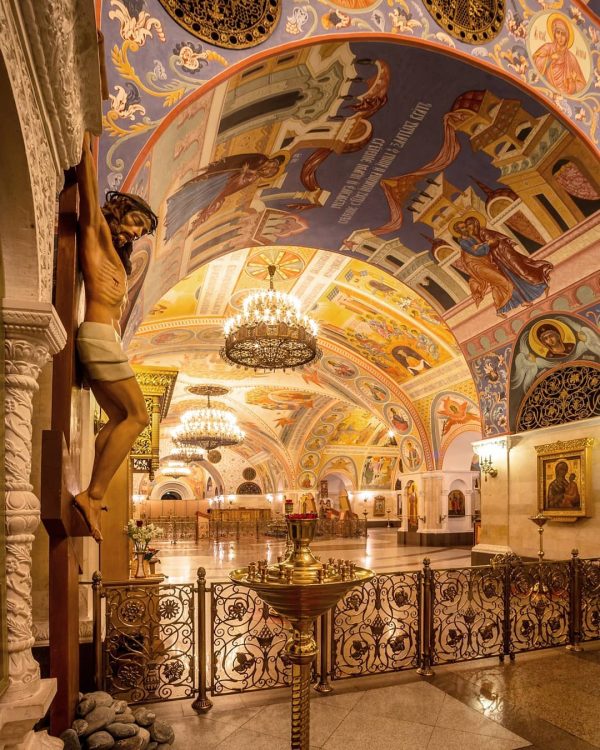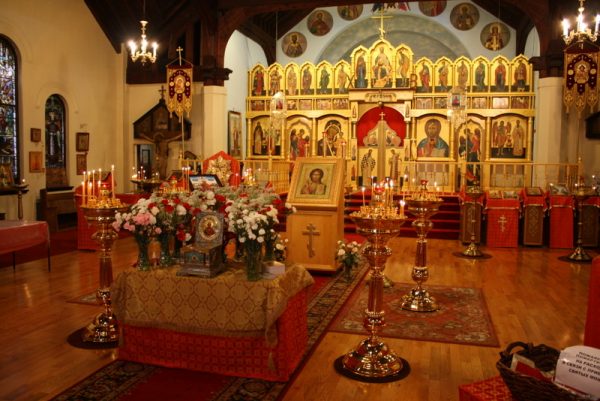I have not written a blog for quite some time for two reasons. First, there has been a barrage of news involving Russia that has distracted me from writing. Politics won’t be the focus of this blog, but I will briefly comment. President Putin was re-elected on March 18. Of course most news outlets in America either stated or hinted it was a “sham election.” There were actually many official election observers from all over the world here, and none of them turned up actual accounts of fraud. (My next blog will address the elections in more depth.) America really doesn’t permit foreign observers to monitor our elections, so this allows us to condemn others while pretending no illegals vote in our elections.
Then there was the Skripal nerve agent attack which UK Prime Minister Theresa May immediately blamed on Russia. Many countries, including the U.S., expelled embassy personnel (“spies”) and Russia responded in kind. The “facts” that were asserted by May and Boris Johnson were contradicted, however, when the representatives from UK’s Porton Down had the integrity to say they couldn’t say where the nerve agent came from. Other parts of the story started falling part as well when the victims surprisingly recovered from the military grade nerve agent. Now the news is about the supposed sarin gas attack on innocent families in Syria. Assad and Putin were both blamed immediately. No investigation has been done by the West, and I don’t expect any open international investigation will be conducted. The facts screwed up the Skripal narrative; I don’t think the dogs of war will let that happen again.
The other reason I have not written is more positive. We have been observing Lent. Lent is the 40 days of spiritual preparation in Orthodoxy prior to Holy Week that leads up to the solemn observance of the crucifixion and resurrection of Jesus Christ. It is a time of changing one’s diet and one’s daily routine as much as possible to focus on these events. Preparation is essential for anything one considers important. So with the news reports screaming bad news in our ears, we have also tried to focus on the good news of what we hold dear as people of faith.
In his podcast last week on the John Batchelor show Stephen Cohen referred to an editorial in the Washington Post pubished that week: “Is it a crime to worship God? According to Russia, yes” read the editorial he quoted. Cohen, who is Jewish, pointed out how ridiculous this description of religion in Russia is. One of the most frustrating things about living in Russia is the constant barrage of lies about Russia. This quote was one of the worst. I know the pop term is “fake news,” but I prefer to be more blunt: it is lying. In my last blog I gave a general perspective on the various religions here and how they impact public life. Since Russian Orthodox Christianity has more adherents by far I devoted more space to it. The fact is religion is becoming more and more a part of public life in Russia, and the historic religions are practiced in freedom. In this entry I’ll address the topic more personally. I am a foreigner and also Eastern Orthodox. That I attend a Russian Orthodox church and have neither Russian nor Greek ancestry surprises some Russians. When they find out my Russian wife did not convince me to become Orthodox (it actually was the other way around), people get even more perplexed. So I write as both an outside observer and a participant.
Some of my early readers have already heard this story, but by way of “review,” neither Oksana nor I was rasied Orthodox. She was brought up in a Soviet family, so she was never really exposed to matters of faith. Belief in God was just not something they ever discussed. Oksana was converted in a Protestant Church when she was in University in St. Petersburg. She went to the church to hear and interact with native speakers of English, since that was her major course of study. She ended up becoming part of the church. I, on the other hand, was brought up in an extremely devout Southern Baptist family. My late father was a Southern Baptist preacher. Oksana and I both were out of church for a while after we were married, but eventually we started attending a local Baptist Church, and later non-denominational church, while we lived in America. We came to the Eastern Orthodoxy gradually. I did a lot of reading and started attending Vespers services on Saturday nights. Eventually, we became catechumens and a year later we were chrismated into the Orthodox church. For us the move to Orthodoxy had nothing to do with bad feelings toward anyone or any Protestant church. We still remain close to our Protestant friends and have treasured memories of the churches of which we were a part.
There were folks from various nationalities, including quite a few from Eastern Europe, in our Orthodox Church in South Carolina. There were also several former Catholics and Protestants, so both Oksana and I felt at home. It was really the only Orthodox congregation anywhere near us, so we were grateful. Finding a church here took longer than we thought it would, despite the fact there are a number of them. Eventually we came to a rather small Russian Orthodox church in a nearby village that became our church home.
While all Orthodox Churches use the same Liturgy (in different languages obviously), there are some minor differences in the Russian Orthodox Churches here that we’ve had to adjust to. For me, it has been a bigger adjustment because of the fact the services are in Church Slavonic. I could understand enough to follow if the Liturgy were Russian, but Slavonic makes it very difficult for me. So the first and most obvious difference is the language.
Second, all women in the Russian Orthodox Church wear a head covering and overall dress more traditionally, no pants. The wearing of head coverings was optional in our OCA church. I do not want to give the impression that there are guards at the doors of our church here. If a lady does not have a veil, one will be graciously and quietly provided. Further, our priest frequently reminds parishioners of the dangers of focusing on externals.

Photo by @svetosh13
The third difference involves receiving Communion. Receiving the Eucharist, the body and blood of Christ, is the focus of the Liturgy in both American and Russian Orthodoxy. We go to the front toward the conclusion of the Liturgy for receving the elements from the priest. The first difference on this issue is confession. Since it is so serious, we must confess our sins to Christ in the presence of the priest at the appointed times. In the OCA church we did confession at least four times a year—once at each major fast. You could make an appointment so you would have whatever time you needed. Obviously one could come at other times if necessary. In the Russian Orthodox Church confession is every week. You do not participate in the Eucharist unless you have been to confession. I took Communion twice last week, so I went to confession twice. I had to reorient my understanding of confession because all I knew about it before was from Roman Catholicism. In Orthodoxy the priest is a witness to your confession to Christ, a sort of an accountability partner – to make it more understandable for my Protestant friends. He may provide advice, counsel, or encouragement at any time, but you are not confessing to him. You receive the priestly prayer of absolution after the confession, but it is made clear that Christ, not the priest, is absolving you and forgiving you of your sins. Again, the language is an issue for me. I speak Russian with my priest, but when I’m confessing my wrongdoings I realize if I get a word wrong I could be confessing the wrong thing. One purpose of the confession is that we examine our hearts before we receive the body and blood of Christ. I’m examining my heart and my Russian language skills all at once.
The second difference is that when we went to receive the cup in America we went together as a family. Not so in Russia. Babies and children go first; then the men; and finally the women. There is always a babushka (grandmother) there making sure the women do not get in front of the men. I didn’t know this the first time and by nature did not step in front of ladies. I learned not to make that mistake again!
The highlight of the year is Pascha, or Easter as most Catholics and Protestants call it. As I said earlier we observe the “ascetic” fast prior to this event, which is done to prepare ourselves. We don’t eat meat, dairy and animal fats. Now, no one asks you if you have kept the fast. That is an individual matter and people are encouraged to “look in their own plate only.” In America we were also carefully taught not to offend or give any impression we were better than anyone else for observing it. If you were invited by a non-Orthodox to a meal you ate whatever was set before you without mentioning “fast.” That isn’t talked about here as much, because in Russia pretty much everyone knows it is going on. They have products marked specifically for the fast seasons in grocery stores, and several restaurants have menus for those observing the fasts. It is more a part of the culture than it was in South Carolina, where most people do not really know much about Eastern Orthodoxy. If they are religious there, they’re probably Protestants and have no idea what you are talking about when you mention “the Nativity Fast” or “Apostles’ Fast”.
Our first Pascha in South Carolina was an amazing experience. We went to church late at night, almost midnight, the Saturday night before. The services and Liturgy lasted well into the morning. We finished around 3:00 a.m. and then had a fellowship meal. We went home and slept, and then brought the boys back for a Vespers and egg hunt at the church. Our last year there Marina Grace was a baby, so Oksana stayed home with her. The boys and I went, and they both were altar boys. It was quite an experience for them.
The thing that was really moving for us is when they had the reading from the Gospel of St. John in different languages. Anyone who spoke a different language was invited to read a small portion of the Gospel in their own language. I think there were 18 languages spoken our first year. Our church there was not a large church, but there were people from literally all over the world. We were amazed! For couples like us from two different countries it was so refreshing to hear of others with stories like ours.
This year Gabriel was very excited. He is now an “official” altar boy. He is, in fact, the only altar boy. Two others serve the altar, but he is the only child. Oksana was also looking forward to it, although we were both concerned about how three year old Marina Grace would do. To be honest, I wasn’t excited about it. Standing for four hours in a service where you do not understand anything is tough. I kept reflecting on our experiences back in America. But I believed it was important to go so we all went.
When we arrived I went down for confession. My thoughts were kind of complicated so I had written it out and handed it to the priest. He got a candle, read it, tore the paper and prayed over me. Then he called Oksana over. He wanted me to go put on a robe and do the readings in English. The official “reader” had asked me about maybe doing the English reading, but I told him I can’t chant. He is fluent in English so I thought it was better for him to do it. The priest would have nothing of that. So I went back into the “Sanctuary” section and prepared myself. When the Liturgy began I saw that the church was packed with people. The lie in the Washington Post about religion in Russia came to mind, but I tried to focus on more spiritual things.
It was an interesting experience. I had no idea how much goes on around the altar during the Liturgy because the doors are closed much of the time. Everything was done with such care, especially the handling of the bread and the wine. Our priest, Batyushka Nicolay, made sure everything was done exactly right. Eventually it was time for the readings. I suspected almost everyone there spoke Russian and very few knew English. The languages that were read were 1) Church Slavonic 2) Russian 3) English 4) Belarussian (my friend, the Reader, is from Belarus) and the priest read from the Greek text.
I felt quite honored I had been asked to read. And I felt more a part of the congregation. Due to the language barrier, I usually feel somewhat isolated during Liturgy. Even in Trapeza (Orthodox word for shared meal after the Liturgy) I only have a couple of folks I can talk to. I don’t have enough confidence to initiate a conversation in Russian. And most people feel the same about me I suspect. One Sunday I told one of the ladies who had brought soup that her soup was very tasty. I spoke to her in Russian, and she just stared back and smiled. Later she privately told my wife she couldn’t say anything because she was scared. Oksana said, “Just speak a little slower and more distinctly than you normally do, and he can understand your Russian. Just talk to him. He can speak Russian.” She said, “I can’t. I want to, but I’ve never talked to a foreigner before.” So I realize the anxiety is on both sides. The meal we had after Pascha service (at about 3:30 a.m.) was a wonderful fast-free meal, the first one and much anticipated after the long fasting season . We had “kotlety” (sort of like individual mini meatloaves) as our entree and a few other dishes. People still didn’t approach me and start conversations, but I sensed a lot more smiles, and heard some comments about how nice it was to hear the Gospel in a new language. Our priest, as usual, called me to sit beside him during the meal.
I can’t change the political situation all over the world. I can’t convince America the news there about Russia is all wrong. I can’t convince Russia that many Americans are kind and do not want war. I can reach a few, however. Russia is not a godless dictatorship where worship is outlawed. I don’t care what your news in America says; I live here. They’re lying. Faith is again being woven back into the fabric of life here. You can see it in the big cathedrals in Moscow and St. Petersburg they show on TV here. (Yes, the Russian Orthodox Church has its own network you can watch anytime.) You can also see it in little villages across the rural Russian countryside. And in one of those villages this congregation sees a real live American. I try to speak their language; my kids go to the same schools as their kids; I believe in the same God and worship him the same way. I am a part of this world, although I realize the irony of also being an outside observer. Nevertheless, despite the barriers between us that many from my homeland want to raise higher, this Pascha turned out to be a small but meaningful step to becoming more a participant and less an outside observer.
















